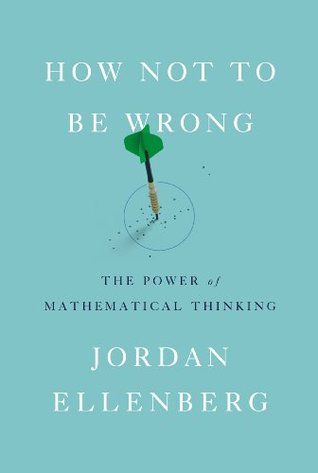More on this book
Community
Kindle Notes & Highlights
“Mathematics is not just a sequence of computations to be carried out by rote until your patience or stamina runs out—although it might seem that way from what you’ve been taught in courses called mathematics.
Knowing mathematics is like wearing a pair of X-ray specs that reveal hidden structures underneath the messy and chaotic surface of the world.
Abraham Wald
Oskar Morgenstern. Morgenstern would later immigrate to the United States and help invent game theory,
The Statistical Research Group (SRG), where Wald spent much of World War II, was a classified program that yoked the assembled might of American statisticians to the war effort—something like the Manhattan Project, except the weapons being developed were equations, not explosives.
Frederick Mosteller, who would later found Harvard’s statistics department,
Leonard Jimmie Savage, the pioneer of decision theory and great advocate of the field that came to be called Bayesian statistics.
Norbert Wiener, the MIT mathematician and the creator of cybernetics, droppe...
This highlight has been truncated due to consecutive passage length restrictions.
Milton Friedman, the future Nobelist in economics, was often the fourth-smart...
This highlight has been truncated due to consecutive passage length restrictions.
Here’s an old mathematician’s trick that makes the picture perfectly clear: set some variables to zero.
The winners are usually the guys who get 5% fewer of their planes shot down, or use 5% less fuel, or get 5% more nutrition into their infantry at 95% of the cost. That’s not the stuff war movies are made of, but it’s the stuff wars are made of. And there’s math every step of the way.
“What assumptions are you making? And are they justified?”
To a mathematician, the structure underlying the bullet hole problem is a phenomenon called survivorship bias.
Mathematics is the study of things that come out a certain way because there is no other way they could possibly be.
Mathematics is the extension of common sense by other means.
it is pretty hard to understand mathematics without doing some mathematics.
Horace’s famous remark “Est modus in rebus, sunt certi denique fines, quos ultra citraque nequit consistere rectum” (“There is a proper measure in things. There are, finally, certain boundaries short of and beyond which what is right cannot exist”).
Nicomachean Ethics, Aristotle observes that eating either too much or too little is troubling to the constitution. The optimum is somewhere in between, because the relation between eating and health isn’t linear, but curved, with bad outcomes on both ends.
Friedman’s famous slogan on taxation is “I am in favor of cutting taxes under any circumstances and for any excuse, for any reason, whenever it’s possible.”
straight locally, curved globally.


